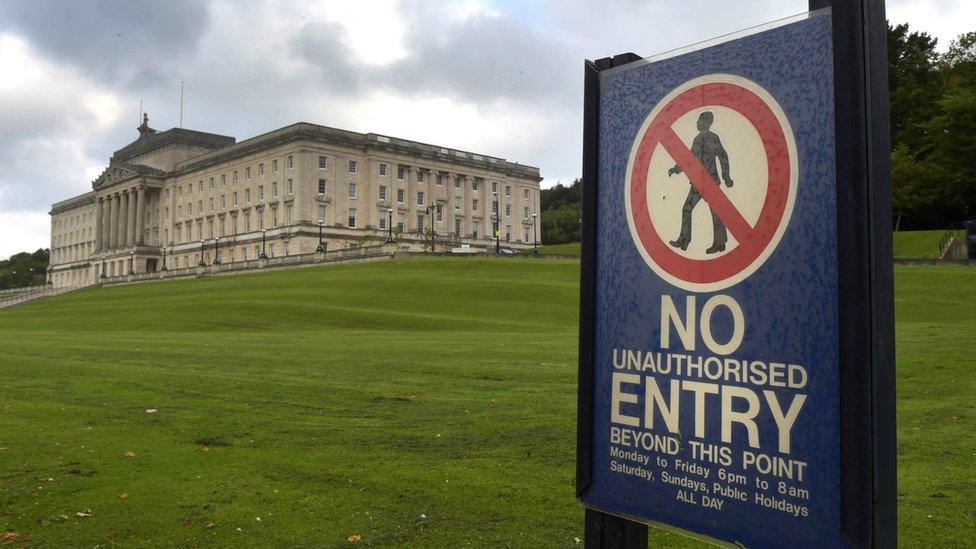'Severe' time pressures could stop NI legislation, warns speaker
- Published
- comments

The Northern Ireland Assembly is due to be dissolved next March ahead of a May election
"Severe" time pressures could prevent some long-awaited legislation from being passed before the next Stormont election, parties have been warned.
The Northern Ireland Assembly is due to be dissolved next March, ahead of an election in May.
The assembly speaker has written to MLAs to say at least 30 bills have yet to pass all legislative stages.
Alex Maskey said it was "highly unlikely" that all of them would make it into law in time.
In his letter, the speaker said the Covid-19 pandemic and the fact that the power-sharing institutions had only returned in January 2020, after three years of deadlock, had created "very specific challenges".

Speaker Alex Maskey warned it was highly unlikely that all the bills would complete their passage
He said the final number of executive and private members' bills has yet to be confirmed.
"This will create severe pressure on assembly and committee time," he said.
"It therefore appears highly unlikely that all of the bills which are currently in front of the assembly, or might be submitted, will be able to complete their passage by the end of the mandate."
The bills from executive ministers currently making their way through assembly scrutiny include:
introducing a soft opt-out organ donation system for Northern Ireland, in line with the rest of the UK
two climate change bills seeking to set targets for reducing carbon emissions
legislation to make stalking a specific criminal offence
modernising Northern Ireland's adoption laws, which are three decades old
introducing paid leave for parents who lose a child, a system already in place in England and Wales
Several private members' bills - from MLAs who are not part of government - have also been introduced.
The speaker warned against further bills being introduced in the weeks ahead due to time pressures.
"It is the availability of time... which will be the biggest resource constraint in the months ahead," he said.


The focus at Stormont is often drawn to the latest political row or headline but scrutiny of serious issues is an important function.
Time to deal with long-awaited laws was always going to be tight after a three-year impasse.
Coronavirus has complicated the chances of some bills making it into the statute books.
Then, there is the added factor of the Democratic Unionist Party's (DUP) threat to withdraw from power-sharing hanging over the institutions, meaning a rush now to progress ministers' bills.
Expect plenty of late nights as MLAs and officials work to assess and argue over how some new laws should look.
Some MLAs outside the executive know their own pieces of legislation will not make the cut in time.
But ahead of the election, being able to show they have championed a certain issue may not do them any harm.

Related topics
- Published26 October 2021

- Published24 June 2021

- Published20 September 2021

- Published25 October 2021

- Published27 February 2023

- Published2 February 2024
